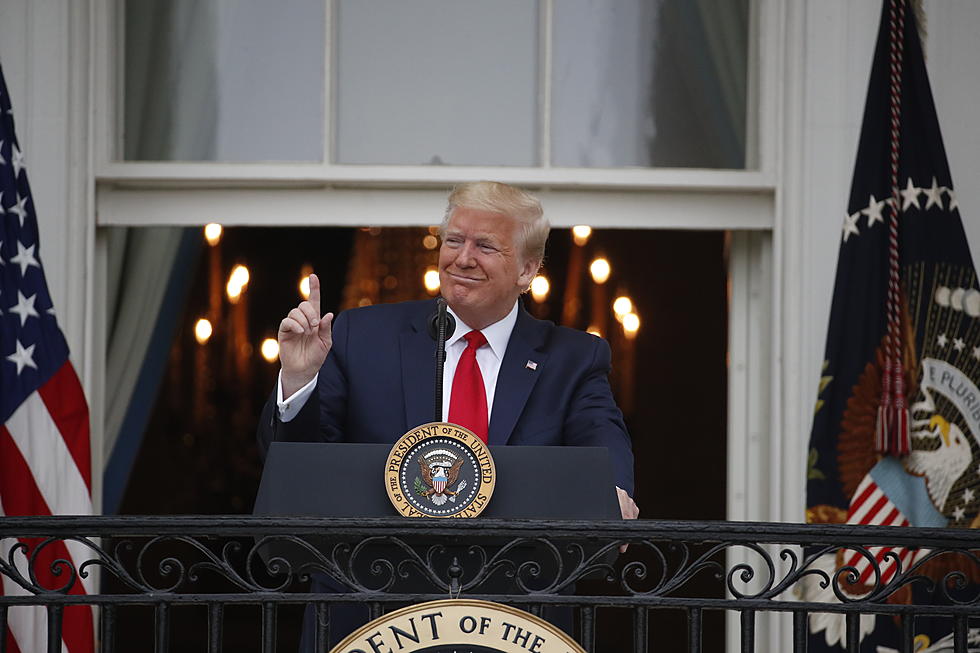
After Trump labels religion ‘essential,’ more clergy take NJ to court
As President Donald Trump declared religious services "essential," calling on the nation's governors to allow house of worship to reopen this weekend, several churches in New Jersey joined a growing number of religious leaders suing Gov. Phil Murphy over his executive orders.
The pastors of four Protestant evangelical churches in South Jersey on Friday filed a lawsuit in U.S. District Court seeking to overturn Murphy's order treating churches like a non-essential business.
The lawsuit is backed by the Center for American Liberty, whose founder and CEO, Harmeet K. Dhillon, a former Republican Party official in California, said that "criminalizing religious expression is really the antithesis of the First Amendment."
The attorney on the case, Ronald D. Coleman of the Roseland firm Mandelbaum Salsburg, said "nobody should have to choose between obeying God and obeying Trenton."
Another federal lawsuit could be filed on Wednesday by 67 other pastors who say "houses of worship such as churches should not be relegated to the category of 'business' — essential or not.
"Houses of worship warrant separate and independent consideration given the sacred constitutionally protected activity that takes place inside," attorney Demetrios K. Stratis, of the Fair Lawn firm Ruta, Soulios & Stratis, said in a letter to the governor's office this week.
"Pastors understand the State’s health and safety protocols respecting social distancing and sanitization and would, of course, abide by such requirements in resuming in-person church services," his letter said.
The legal action by the pastors, listed below, is backed by the conservative Family Policy Alliance.
Earlier this month, the pastor of the independent St. Anthony of Padua Church in North Caldwell and a Lakewood rabbi became the first religious leaders in the state to file a lawsuit raising constitutional challenges to the emergency executive orders under the First and 14th amendments.
Since late April, Murphy has been slowly lifting the restrictions he first placed on travel, gatherings and commerce in March to help slow the spread of the coronavirus, which has killed more than 11,000 state residents. The state has not provided a timeline for when houses of worship may reopen.
On May 13, Murphy announced that houses of worship could begin providing drive-thru or drive-in service. On Friday, he eased the 10-person limit on outdoor gatherings to allow for up to 25 people. In early May, Catholic churches began allowing private indoor prayers while continuing to stream other services online.
In Bridgewater, a couple of churches planned on having outdoor services this weekend. The township's mayor on Friday called on the municipal Office of Emergency Management to help houses of worship plan for outdoor services.
But the pastors who are suing say that their faith requires worshipers to gather in person. The South Jersey churches say their worshipers are mostly low-income and don't all have access to technology.
The Cornerstone Community Church in Millville said it has a plan to spread its 185 worshipers over three Sunday sessions in a building that can seat 300.
The Dwelling Place Network in Vineland said it can spread its 140-person congregation over three sessions at a sanctuary that fits 180. The church says its communion, adult baptisms and hands-on divine healing can only be conducted in person.
The pastor of New Life Church in Millville says that online streaming and drive-thru services cannot allow for the "speaking in tongues, exuberant lifting of the hands by the congregation, Divine healing and other forms of charismatic 'active worship'" performed by worshipers.
House of Praise Church in Swedesboro said it has 45 regular worshipers at weekly services and its sanctuary can seat 250.
Their lawsuit says Murphy's order relegates "faith activities to at best second-class status" and "substantially burdened their religious exercise by forcing them to choose between their sincerely held religious beliefs and their desire to follow secular rules, in many cases imposed by unelected officials."
Across the country, some states have started allowing houses of worship to reopen.
Minnesota Gov. Tim Walz on Saturday said churches can open at 25% occupancy as long as they follow safety guidelines.
Trump on Friday threatened to "override" governors who do not follow through on allowing houses of worship to reopen, but the president does not appear to have the authority to do so.
“Governors need to do the right thing and allow these very important essential places of faith to open right now — for this weekend," Trump said.
“Some governors have deemed liquor stores and abortion clinics as essential," he said. “It’s not right. So I’m correcting this injustice and calling houses of worship essential."
The Centers for Disease Control and Prevention on Friday issued "interim guidance for communities of faith," including promoting hand-washing, wearing face coverings, stepping up cleaning of facilities, and encouraging social distancing.
Earlier this month, the CDC labeled a Washington state choir practice in March as a "superspreading event" in which a symptomatic patient attended the 2.5-hour singing session with 60 other people, of whom 32 later contracted COVID-19, 20 others were suspected to have gotten COVID-19, three were hospitalized and two died.
KEEP READING: Travel back in time to a colorized Atlantic City circa 1919
Sergio Bichao is deputy digital editor at New Jersey 101.5. Send him news tips: Call 609-359-5348 or email sergio.bichao@townsquaremedia.com.
More From New Jersey 101.5 FM









